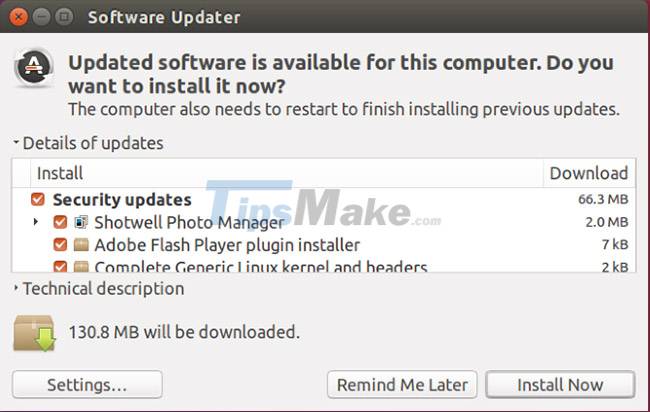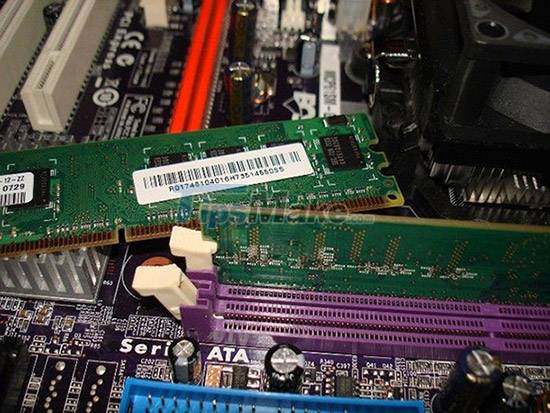7 things Ubuntu does better than Windows
Windows is a great operating system. It is the most popular operating system globally, for home and business users.
However, that doesn't mean Windows is the best choice for you. You may have heard of the Linux operating system called Ubuntu. If you haven't tried it yet, you may be missing out on some great features.
Here are all the things that Ubuntu does better than Windows.
1. Update

Just like when you sit down to work on your Windows PC, you'll get a pop-up asking you to update Windows. After the update manager downloads the required large files, you must restart the computer. In previous versions, you could choose when to restart your computer.
However, Microsoft decides that Windows 10 will determine on your behalf, randomly restarting your computer when you least expect it. Once it's back up and running, you open your favorite software and another pop-up window appears, asking you to update the software before you can use it.
This situation occurs because Windows and macOS handle operating system and application updates separately. Windows Update is primarily focused on critical infrastructure updates, so that applications require manual updates as needed.
Ubuntu takes a different approach. Installs and updates are managed through the repository. Instead of downloading apps from the developer's website, the software repositories are packaged for your version of Ubuntu. Using these repositories, Software Updater can notify you of pending updates.
It's not just app updates that are handled this way; Operating system updates are also integrated into Software Updater. This makes it a single destination to manage all your updates, to ensure you have the latest version of Ubuntu, much simpler than the application-by-app basis found on Windows. ten.
2. Computer Security

If you've ever used a Windows PC, you know you need antivirus software. Windows has long been a target of malware, scammers, and viruses. Part of this is due to its ubiquity - it's much easier to write malware for the most common operating system.
However, this is also down to the way Windows 10 handles security. There's no denying the fact that Ubuntu is more secure than Windows. By default, user accounts in Ubuntu have less system-wide permissions than in Windows.
This means that if you want to make changes to the system, such as installing apps, you'll need to enter your password to do so. In Windows it is not. This makes it much more difficult to execute malware or viruses inside Ubuntu. However, Microsoft introduced User Account Control (UAC), which performs a similar function.
Despite these important differences, Linux is not immune to viruses; they're just less likely to get infected. You should still browse the web safely, visit reputable sites, and be careful. If you don't feel secure, consider installing one of the best free Linux antivirus programs.
3. Customization

Microsoft limits the amount of customization you can make to your operating system. While Windows 10 is the most customizable version yet, it still hasn't reached the level seen on Ubuntu.
Recent releases have brought the system up to modern standards.
However, if the default Ubuntu look and feel set up doesn't work for you, there are ways to make your Linux desktop look cool. And, if you remember how it feels to use Windows, you can even make Linux look like Windows 10.
4. System Resources

Ubuntu is one of the best options to revive old hardware. If your computer is sluggish and you don't want to upgrade to a new machine, installing Linux might be the solution.
Windows 10 is a feature-packed operating system, but you may not need or use all of the functionality built into the software. However, this ability is still there and it drains resources from your main quests.
Ubuntu isn't the only lightweight Linux distribution that can give your old PC a new life, but it is one of the most popular and stable. During the installation, you can choose the standard setup or the minimal setup, further reducing the size and resource requirements.
Many background processes are also running in Windows and controlling them is not an easy task. This is in contrast to Ubuntu, where the entire operating system is designed for your input. This reinforces the mentality that your computer is yours and you decide how it runs.
5. Live environment

If you have never used Windows before and decide you want to try it, you must commit to installing it on your computer first. That can lead to problems like data loss, if you later decide to stop using Windows. With Ubuntu it is different.
In Ubuntu, you can burn images to a CD or USB and boot directly from there. This is a fully working version of the operating system, which means you can try out every aspect of Ubuntu without having to commit to installing it on your hard drive.
If you change your mind, no problem; just reboot the machine and you will be back to the previous operating system as if nothing happened. This feature is not unique to Ubuntu; you can also install other Linux distributions on USB.
6. Software

One of the main reasons people decide to stick with Windows is the software. Indeed, most of the Windows programs you use regularly are not available on Ubuntu or any Linux distribution. So in terms of software, how is Ubuntu better than Windows 10?
The simple answer is that most Linux software is open source. By switching to Ubuntu, you open up a world of Free and Open-Source Software (FOSS). On first startup, you won't find Microsoft Office, but you will have access to LibreOffice instead.
The same is true for most of your favorite software. While some apps are available via the Snap Store or as downloadable DEB packages, you'll have to look for alternatives. Ubuntu itself even comes pre-installed with daily versions of apps.
Whether this is considered a positive or not depends a lot on your overall perspective. However, if you are considering switching to Ubuntu, you are probably already interested in open source software and are also ready to switch to other alternatives.
7. Free

Unlike Microsoft's operating system, Ubuntu is completely free. Not only will this save you money buying a Windows license, but it also means you can also save money on new hardware by choosing to un-install Windows. However, you might object that Windows 10 is also free.
Although Microsoft initially offered free downloads of Windows 10, the opportunity was limited and this offer has now expired. There are several ways to get Windows 10 for free or cheap, but they have limitations. Ubuntu will always be free.
Ubuntu is the most budget-friendly choice. If you value software and have a bit of a budget, you can always consider donating to the Ubuntu project through the developer's website.
Windows vs Ubuntu: Which do you prefer?
Overall, both Windows 10 and Ubuntu are great operating systems, each with their own strengths and weaknesses. Windows has always been the default operating system of choice, but there are plenty of reasons to consider switching to Ubuntu.
You should read it
- ★ 10 reasons to choose Ubuntu 12.10 instead of Windows 8
- ★ How to install Ubuntu in parallel with Windows using USB
- ★ How to Migrate from Windows to Ubuntu
- ★ Ubuntu 18.04 is officially available on Microsoft Store, can run as an application on Windows 10
- ★ Why is Ubuntu LTS preferred over regular distros?